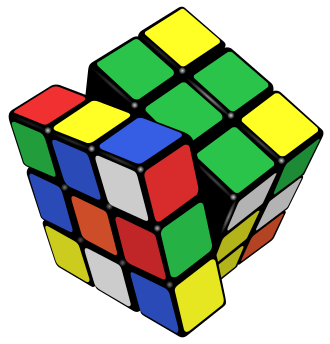Trillion


Trillion is a numerical term used to describe a large number, specifically 1,000,000,000,000 (10^12) in the short scale used predominantly in the United States, modern British, and other countries that follow this numerical naming convention. In the long scale, which is used in many countries in Europe and Latin America, a trillion refers to 1,000,000,000,000,000,000 (10^18), which is what is known as a quintillion in the short scale. The term "trillion" is derived from the Latin prefix "tri-" meaning three, indicating a thousand raised to the power of three (10^3)^3 in the short scale.
Usage[edit]
The use of the term trillion varies by context and geographical location. In financial reporting, science, and engineering in countries using the short scale, a trillion is a commonly referenced figure. For example, discussions about the national debt, gross domestic product (GDP), and budgets of large countries often involve sums in the trillions of dollars. In the field of astronomy, distances, masses, and energies might also be described using the term trillion, given the vast scales involved.
Mathematical Representation[edit]
In the short scale:
- 1 trillion = 1,000,000,000,000 = 10^12
In the long scale:
- 1 trillion (equivalent to quintillion in short scale) = 1,000,000,000,000,000,000 = 10^18
Comparison and Context[edit]
To provide context to the magnitude of a trillion, consider that a million seconds is approximately 11.57 days, a billion seconds is about 31.7 years, and a trillion seconds is roughly 31,709 years. Such comparisons help illustrate the vast difference between these large numbers.
Global Differences[edit]
The distinction between the short and long scales leads to significant differences in numerical interpretation between countries. This can cause confusion in international finance and global discussions, where the same terms can imply vastly different magnitudes. Awareness and clarification of the scale being used are crucial in these contexts.
In Popular Culture[edit]
The concept of a trillion has increasingly entered popular discourse, particularly in discussions around government budgets, economics, and the financial scale of large corporations. The term is often used to emphasize the enormity of a figure or to discuss the implications of dealing with such large-scale finances or data.
| This article is a stub. You can help WikiMD by registering to expand it. |
Ad. Transform your life with W8MD's Budget GLP-1 injections from $75


W8MD offers a medical weight loss program to lose weight in Philadelphia. Our physician-supervised medical weight loss provides:
- Weight loss injections in NYC (generic and brand names):
- Zepbound / Mounjaro, Wegovy / Ozempic, Saxenda
- Most insurances accepted or discounted self-pay rates. We will obtain insurance prior authorizations if needed.
- Generic GLP1 weight loss injections from $75 for the starting dose.
- Also offer prescription weight loss medications including Phentermine, Qsymia, Diethylpropion, Contrave etc.
NYC weight loss doctor appointmentsNYC weight loss doctor appointments
Start your NYC weight loss journey today at our NYC medical weight loss and Philadelphia medical weight loss clinics.
- Call 718-946-5500 to lose weight in NYC or for medical weight loss in Philadelphia 215-676-2334.
- Tags:NYC medical weight loss, Philadelphia lose weight Zepbound NYC, Budget GLP1 weight loss injections, Wegovy Philadelphia, Wegovy NYC, Philadelphia medical weight loss, Brookly weight loss and Wegovy NYC
|
WikiMD's Wellness Encyclopedia |
| Let Food Be Thy Medicine Medicine Thy Food - Hippocrates |
Medical Disclaimer: WikiMD is not a substitute for professional medical advice. The information on WikiMD is provided as an information resource only, may be incorrect, outdated or misleading, and is not to be used or relied on for any diagnostic or treatment purposes. Please consult your health care provider before making any healthcare decisions or for guidance about a specific medical condition. WikiMD expressly disclaims responsibility, and shall have no liability, for any damages, loss, injury, or liability whatsoever suffered as a result of your reliance on the information contained in this site. By visiting this site you agree to the foregoing terms and conditions, which may from time to time be changed or supplemented by WikiMD. If you do not agree to the foregoing terms and conditions, you should not enter or use this site. See full disclaimer.
Credits:Most images are courtesy of Wikimedia commons, and templates, categories Wikipedia, licensed under CC BY SA or similar.
Translate this page: - East Asian
中文,
日本,
한국어,
South Asian
हिन्दी,
தமிழ்,
తెలుగు,
Urdu,
ಕನ್ನಡ,
Southeast Asian
Indonesian,
Vietnamese,
Thai,
မြန်မာဘာသာ,
বাংলা
European
español,
Deutsch,
français,
Greek,
português do Brasil,
polski,
română,
русский,
Nederlands,
norsk,
svenska,
suomi,
Italian
Middle Eastern & African
عربى,
Turkish,
Persian,
Hebrew,
Afrikaans,
isiZulu,
Kiswahili,
Other
Bulgarian,
Hungarian,
Czech,
Swedish,
മലയാളം,
मराठी,
ਪੰਜਾਬੀ,
ગુજરાતી,
Portuguese,
Ukrainian